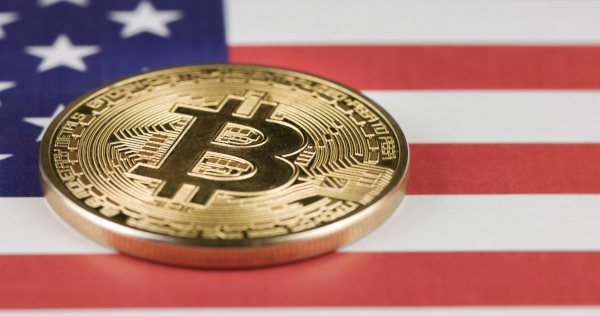An Initial Coin Offering (ICO) is the first time that a blockchain asset (like Bitcoin, Dogecoin, or Etherium) is offered for sale. The US Government recognizes blockchain assets as items holding value, but it distinguishes them from currency. Because the US Government treats blockchain assets like securities, the IRS taxes coin trades like they would treat a stock sale: Capital gains tax must be paid based on the difference in the asset’s value at time of the first trade (incoming) and the second trade (outgoing). This structure makes it incredibly difficult to use coins as currency, for which they were intended, and simultaneously maintain your obligations to the government. But if coins are treated like stock certificates, does this mean that the original creator of a new coin must register the coin with the SEC when he or she sells to a member of the public?
When a corporation sells stocks to a nonaccredited investor, the corporation must first register the security with the SEC. So, how are blockchain assets handled? And what happens if a person chooses to give away blockchain assets in exchange for investment income? Today, we will review these situations and see what would likely happen.
The general rule excludes consumables from SEC registration
In generaly, the law excludes consumable items from SEC registration. The court applies the “Howey Rule” in determining whether an offering is an investment contract. 1Hunichen v. Atonomi Llc (W.D.Wash. June 2, 2020, No. C19-0615-RAJ-MAT) 2020 U.S.Dist.LEXIS 244039, at *20.). Under the Howey Rule, an initial coin offering would be an investment contract if the transaction contained three essential elements: (1) there is a pooled investment of money (2) in a common enterprise (3) with an expectation of shared profits. 2Hunichen v. Atonomi Llc (W.D.Wash. June 2, 2020, No. C19-0615-RAJ-MAT), supra, U.S.Dist.LEXIS 244039, at *20.). However, the SEC has held that when the instrument is purchased as a consumable that it cannot be an investment contract. 3Hunichen v. Atonomi Llc (W.D.Wash. June 2, 2020, No. C19-0615-RAJ-MAT), supra, U.S.Dist.LEXIS 244039, at 28 [“when a purchaser is motivated by a desire to use or consume the item purchased . . . the securities laws do not apply.”].
Since coins are consumable, are they exempt from SEC registration based on this rule of consumption?
Are initial coin offerings exempt from SEC registration when coins are consumable?
In Hunichen v. Atonomi LLC, the court evaluated this very issue. 4Hunichen v. Atonomi Llc (W.D.Wash. June 2, 2020, No. C19-0615-RAJ-MAT) 2020 U.S.Dist.LEXIS 244039, at *28. Atonomi argued that all ICO participants purchased the tokens for their use as a means of validation on the Internet of Things. 5Hunichen v. Atonomi Llc (W.D.Wash. June 2, 2020, No. C19-0615-RAJ-MAT) 2020 U.S.Dist.LEXIS 244039, at 28–29. However, Hunichen argued that even though the tokens had utility, that the initial investors could not anticipate any valuable use for that purpose, because, at the time of purchase, Atonomi had not yet developed the technology that would make the tokens work. 6Hunichen v. Atonomi Llc (W.D.Wash. June 2, 2020, No. C19-0615-RAJ-MAT) 2020 U.S.Dist.LEXIS 244039, at 29.
Ultimately, the court determined that whether or not a consumable item, like a blockchain coin, was purchased for consumption depended upon the intent of the purchaser and not the substance of the documents stating what was possible. 7Hunichen v. Atonomi Llc (W.D.Wash. June 2, 2020, No. C19-0615-RAJ-MAT), supra, U.S.Dist.LEXIS 244039, at 30-32. The court found sufficient evidence to believe that Hunichen could make a convincing argument that initial investors had an expectation of profits and that they purchased tokens, not for their intrinsic value in use, but for the speculative value of making a profit off of potential future uses. 8Hunichen v. Atonomi Llc (W.D.Wash. June 2, 2020, No. C19-0615-RAJ-MAT), supra, U.S.Dist.LEXIS 244039, at 30-32.
In the case of Hunichen v. Atonomi Llc (W.D.Wash. June 2, 2020, No. C19-0615-RAJ-MAT), supra, U.S.Dist.LEXIS 244039, the court’s findings regarding Hunichen’s likelihood of success gave it sufficient reason to freeze the accounts of Atonomi LLC until the matter was resolved by trial. At trial, the outcome on this issue would depend upon whether Hunichen could sufficiently prove the intent of the initial purchasers to hold the tokens as investments instead of tokens that could be used for their intended purpose.
This case is a Washington Case that applies Federal law to answer questions about initial coin offerings. It is not binding upon the courts of California, but it is persuasive.

